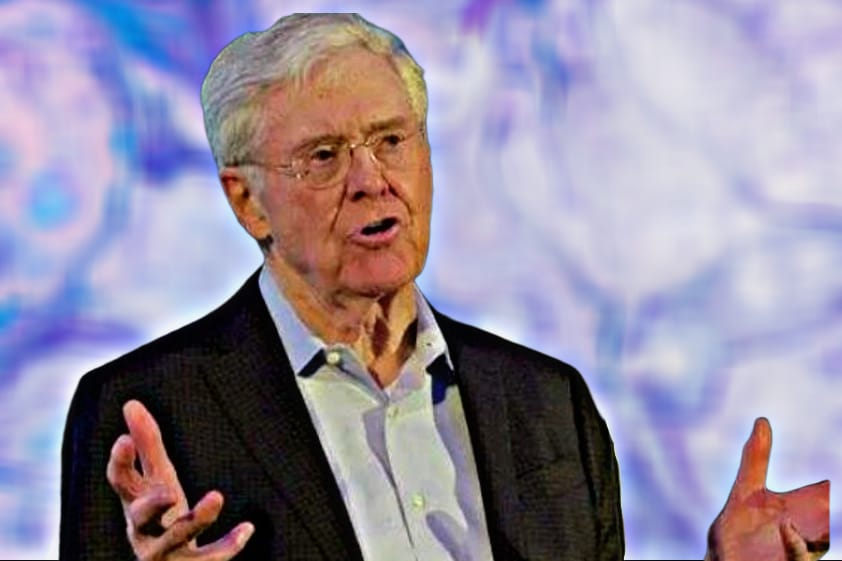The Charles Koch Foundation is one of the most influential philanthropic organizations in the United States, known for its focus on advancing the principles of free-market capitalism, individual liberty, and limited government. Founded by Charles Koch, the chairman and CEO of Koch Industries, the foundation has become a significant force in promoting economic freedom, entrepreneurship, and social change through research, education, and policy initiatives.
Over the years, the Charles Koch Foundation has supported a variety of causes, with a particular emphasis on economic research, public policy, education, and criminal justice reform. Its funding initiatives often align with the libertarian beliefs of Charles Koch, who advocates for policies that encourage personal responsibility, individual rights, and a society based on voluntary cooperation.
In this article, we will take a deep dive into the mission, history, projects, and impact of the Charles Koch Foundation. We will explore the foundation’s objectives, the key areas it supports, and how it contributes to shaping public policy in the U.S. We will also discuss some of the criticisms and controversies surrounding the foundation’s influence on politics and education.
The Mission of the Charles Koch Foundation

The Charles Koch Foundation is dedicated to advancing a vision of a free and open society. Its core mission is rooted in the belief that people can live more freely, prosperously, and peacefully when they have the freedom to make choices in their lives and participate in a vibrant marketplace. The foundation’s activities are guided by principles that emphasize:
- Free markets and economic freedom: The foundation believes that free markets create opportunities for individuals and communities to prosper and contribute to the betterment of society. By advocating for deregulation, competition, and low taxation, it seeks to reduce barriers to economic success and innovation.
- Individual liberty and personal responsibility: The foundation upholds the idea that individuals should be free to make decisions about their lives and take responsibility for their actions. This includes advocating for policies that enhance personal freedoms and reduce government interference in people’s everyday lives.
- Social progress and well-being: The foundation also focuses on social progress through initiatives aimed at improving education, healthcare, criminal justice, and economic opportunity. By funding research and policies that focus on market-based solutions to social challenges, it strives to create systems that benefit the broader society.
A Brief History of the Charles Koch Foundation
The Charles Koch Foundation was established in 1980, at a time when Charles Koch was deepening his commitment to libertarian principles. Koch, a chemical engineer by training, was already a successful businessman and the chairman of Koch Industries, one of the largest privately held companies in the world. As his wealth and influence grew, he became increasingly interested in using his resources to promote his ideas about economic freedom and the importance of limited government.
In the early years, the foundation’s work was largely focused on providing financial support to libertarian think tanks and academic institutions that shared Koch’s views on the role of government in society. Over the years, the foundation’s scope has broadened, and it now funds a variety of projects that promote economic liberty, criminal justice reform, and entrepreneurship, among other areas.
The foundation’s involvement in education and public policy advocacy has grown significantly since its founding. It has become a key supporter of academic institutions that promote the economic theories of Austrian economics and classical liberalism, as well as libertarianism. The foundation also works to influence public policy at both the federal and state levels by funding initiatives that advocate for tax reform, regulatory relief, and entrepreneurial opportunity.
Key Areas of Focus for the Charles Koch Foundation

The Charles Koch Foundation supports a wide range of initiatives across several sectors, with a focus on issues that align with the Koch brothers’ belief in free-market principles and individual liberty. Some of the key areas the foundation supports include:
1. Education
One of the primary focus areas of the Charles Koch Foundation is education. Koch strongly believes that education is the cornerstone of individual freedom and economic success. Through its philanthropic activities, the foundation has made substantial contributions to higher education, particularly in the areas of economics and public policy.
The foundation supports a variety of academic institutions and programs that promote classical liberal values and market-based economic solutions. Notably, it has provided funding for the Mercatus Center at George Mason University, one of the most influential libertarian economic think tanks in the world. The Mercatus Center conducts research on a wide range of economic issues, including regulation, tax policy, and entrepreneurship.
In addition to funding academic research, the Charles Koch Foundation also supports fellowships, scholarships, and academic programs designed to develop the next generation of libertarian economists and public policy experts. This includes support for the Institute for Humane Studies (IHS), which provides fellowships to students and scholars who are interested in exploring market-based solutions to social issues.
2. Criminal Justice Reform
Another major area of focus for the Charles Koch Foundation is criminal justice reform. The foundation has long been a proponent of justice system reform, advocating for policies that reduce mass incarceration and focus on rehabilitation rather than punitive measures. This aligns with the Koch brothers’ belief in second chances and the idea that individuals should have the opportunity to turn their lives around after a mistake.
The foundation has supported initiatives aimed at reforming the criminal justice system by advocating for the reduction of mandatory minimum sentences, the decriminalization of certain offenses, and greater emphasis on rehabilitation programs. The Charles Koch Foundation has worked with conservative lawmakers and progressive advocates to promote bipartisan criminal justice reform efforts.
Through its involvement in criminal justice reform, the foundation has helped to fund organizations such as The Justice Action Network and The Bail Project, both of which advocate for reforms that reduce mass incarceration, eliminate discriminatory practices, and improve outcomes for incarcerated individuals.
3. Economic Liberty and Free Markets
Central to the mission of the Charles Koch Foundation is its commitment to promoting economic freedom and the ideals of free-market capitalism. The foundation supports a range of initiatives that seek to reduce the burden of government regulations, promote innovation, and allow entrepreneurs to thrive.
The foundation has funded a variety of research projects, policy initiatives, and advocacy groups that align with Koch’s belief in market-based solutions to social challenges. For instance, the foundation supports organizations like Americans for Prosperity, which works to reduce taxes, eliminate regulatory barriers, and promote entrepreneurial freedom.
Additionally, the foundation is actively involved in the development of entrepreneurship programs aimed at empowering individuals to pursue their own business ventures and create wealth. This includes funding organizations like the Kauffman Foundation, which works to increase the number of new startups and foster entrepreneurial success.
4. Public Policy and Government Reform
The Charles Koch Foundation is also deeply involved in influencing public policy at both the state and federal levels. The foundation works to promote policies that align with its belief in limited government and individual responsibility. This includes supporting efforts to reduce regulations, reform tax codes, and cut government spending.
The foundation has been a major force behind the advocacy for regulatory reform, particularly in areas such as environmental policy, labor laws, and energy production. It has lobbied for deregulation in industries such as energy, healthcare, and telecommunications, with the aim of reducing bureaucratic red tape and promoting innovation.
Additionally, the foundation works with a variety of think tanks and policy research institutions to promote fiscal conservatism and small-government principles. By supporting organizations such as the Cato Institute and The Heritage Foundation, the Charles Koch Foundation contributes to the development of policy solutions that emphasize individual freedom and economic opportunity.
5. Global Development and International Aid
The Charles Koch Foundation has also extended its efforts internationally, working on global development initiatives that promote economic freedom and open markets. The foundation has supported programs that encourage entrepreneurship, trade, and investment in developing nations, with the goal of helping lift individuals out of poverty through market-driven solutions.
The foundation collaborates with international organizations that share its vision of empowering individuals through economic opportunity. This includes supporting efforts to increase financial literacy, business education, and entrepreneurial training in emerging markets.
Criticism and Controversies

While the Charles Koch Foundation has enjoyed significant success in promoting its libertarian ideals, it has also faced considerable criticism, particularly from those who argue that the foundation’s support for free-market policies primarily benefits the wealthy and powerful. Critics contend that the foundation’s political influence distorts public policy in favor of corporate interests, often at the expense of public welfare.
Additionally, some critics have raised concerns about the foundation’s funding of academic institutions and think tanks, alleging that its financial contributions could influence research agendas and stifle alternative viewpoints. For example, the foundation’s support for libertarian and free-market economics has been criticized by opponents who argue that such ideas fail to adequately address issues such as income inequality, environmental protection, and public health.
Conclusion
The Charles Koch Foundation is a key player in the American philanthropic landscape, driving initiatives that promote economic freedom, personal liberty, and limited government. Through its extensive network of academic partnerships, policy initiatives, and philanthropic efforts, the foundation has contributed significantly to shaping public discourse on issues such as criminal justice reform, entrepreneurship, economic policy, and education.
While its influence has sparked debate, there is no denying the foundation’s impact on the policy landscape and its role in promoting market-driven solutions to some of society’s most pressing challenges. As the foundation continues to fund efforts that advance its vision of a free and open society, it will remain an important player in both the worlds of business and philanthropy.

